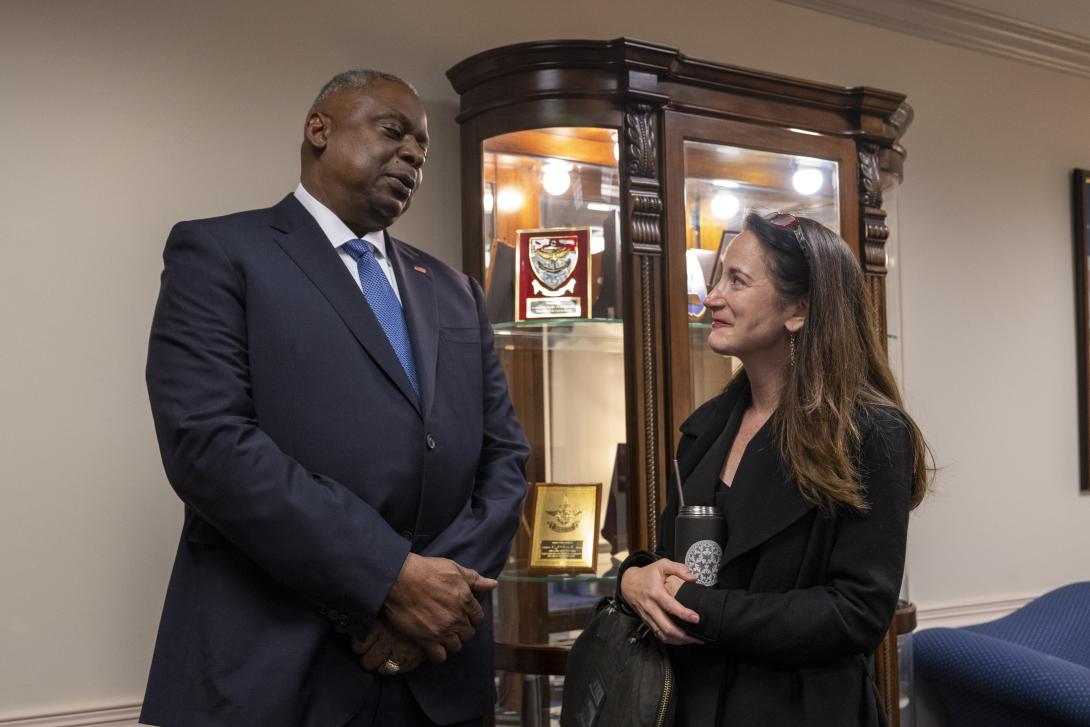Groundbreaking Disclosure of Information Has Made the Difference
The United States works in various classification levels of information and traditionally, the rules that govern information sharing between partners and allies is strict. However, policy improvements championed by the Director of National Intelligence (DNI) Avril Haines, allowing more releasability of data and information by the United States, have had positive impacts, said newly retired Maj. Gen. Daniel Simpson, USAF, former deputy A2/6, Air Staff.
“I think one of the reasons why Ukraine was able to be as effective as they were initially, and continue to be, is because of the policy things she pushed with the White House to be able to get releasability changed,” Simpson said, speaking November 15 at the AFCEA Alamo Chapter’s annual ACE conference in San Antonio.
At the heart of foreign disclosure are the officers who work through the processes to move information to our coalition partners. Their work under the releasability policies has increased, Simpson ventured. “I will tell you right now, with the Russia-Ukraine fight, and I'm sure it is with Israel-Hamas, some of the hardest working individuals are the foreign disclosure officers, trying to work with our partners to be able to get data, information before it has actually been assessed by a human or by a machine and turned into intelligence, to get that to our partners in a timely, relevant fashion that they can actually use.”
Industry solutions that could help automate some of the disclosure processes are welcome to help lessen the load for humans. “That's another area that would be ripe for automation, because there's a lot of governance, there's a lot of rules,” he offered.

I think one of the reasons why Ukraine was able to be as effective …. is because of the policy things [Avril Haines] pushed through with the White House to be able to get releasability policies increased.
The Five Eyes Coalition between the United States, Canada, the United Kingdom, New Zealand and Australia and their intelligence communities has long provided “easy” information sharing among the five nations. However, as the United States builds international partnerships around the world, in the face of near-peer competitors such as the People’s Republic of China, the feasibility of information sharing grows more complicated, Simpson said.
“We talk about the Five-Eyes all the time,” he said. “I'm talking to folks who are in that Russian-Ukraine fight and Five Eyes is great. But I need real data and I also need some releasability from countries that are not part of this. It is going to be more and more challenging, the more partners we have. Outside of the Five Eyes everything else is is kind of bilateral island.”
The United States will need to further examine releasability policies to discern if other data sharing is possible and the amount of risk.
“Part of the consideration is how secure are their systems,” Simpson clarified. “If I share it with them, am I handing it off to an adversary.”





Comments